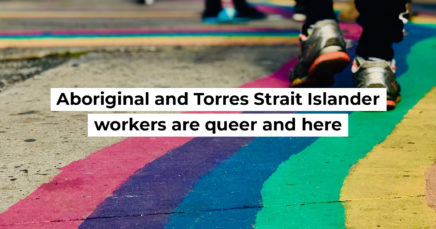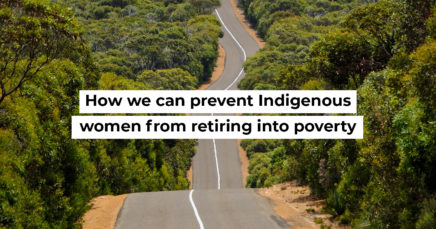Australia has been home to incredible film productions but behind the acclaim is an industry that continues to struggle with equality for all its workers.
Media Entertainment and Arts Alliance First Nations (MEAA) organiser Nathalie McLean described what this inequality looked like for members of the Indigenous Committee of the MEAA.
“First Nations workers represent five per cent of the screen industry and only represent one per cent of live performance in Australia.”
“From 2012 to 2020, 50 percent of films submitted by Australia to the Oscar’s Foreign Language category were stories about Aboriginal people or people of colour made entirely with white creative teams,” McLean said.
The Wakka Wakka, Gubbi Gubbi and Kullali woman was one of the participants at the First Nations Workplace Symposium this week where she shared the experiences of First Nations media and arts workers.
“Our members want to see more First Nations stories told by First Nations people in creative teams and see more First Nations talent on screen and television,” McLean said.
“First Nations people are skilled in all facets of media, arts and culture. But there’s an enormous shortage of sustainable jobs and opportunities.”
A chance to address nationwide workplace issues for First Nations workers
In the lead up to the Jobs and Skills Summit this week, the First Nations Workplace Symposium brought together union members, community organisations, academics, peak bodies, practitioners, and consultants to discuss workplace reforms for First Nations peoples across all industries.
The mob-only space meant that Indigenous voices were front and centre in all discussions.
McLean pointed out that the institutional whiteness present at many media and arts corporations in Australia had created racist work environments for First Nations workers.
“Racism is a serious health and safety hazard, and no worker should experience racism at work. The employers of First Nations arts workers have a positive duty to provide a working environment that is culturally safe and without risk to health,” she said.
Understanding the context of culture in our work as First Nations people means supporting flexible hours and flexible models of work for us. It’s about understanding and supporting cultural obligations in regard to work flexibility, attending funerals and sorry business…Understanding that First Nations people often live 24/7 in the communities we work with.
Nathalie McLean
MEAA First Nations First Peoples Organiser

Australian Council of Trade Unions Indigenous Officer Lara Watson explained that previous governments and major corporations had made a raft of assumptions about First Nations peoples.
Based off these assumptions, they then had imposed Western ideas about employment without even consulting the workers affected.
“Positive change starts with knowing what needs to be changed – we need an investigation into systemic and covert workplace racism against First Nations people, and an inquiry into First Nations pay equity,” Lara Watson said.
“First Nations people have had government programs and structure imposed onto them since colonisation, and it has never worked. If real change is what the Government wants then all practices, including towards, must prioritise self-determination.”

Together workers in unions fight racism at work
The huge inequality First Nations workers face is a result of the failure to acknowledge a long history of Australian employment exclusion and racism.
Of course, the consequences felt far beyond just the media and arts industry. The work-for-the-dole Community Development Program (CDP) showed the racist impact for First Nations peoples.
“CDP was racist, punitive and blatantly targeted Indigenous communities. It’s great to see its removal. The Albanese Government must now work with communities to establish programs that invest in country, culture, skills and training, and lead to secure, well-paid employment,” Watson said.
At the Jobs and Skills Summit, the Albanese Government will reveal their plans for what will replace the Community Development Program.
No one will be sad to see the Program go. The First Nations Workers Alliance has spent years sharing the voices of those stuck in the CDP to demand the abolition of the program.
It’s just what union members do: we show up for workers and ensure no one is left behind.
We won’t rest until there is equality for all, and that means ensuring safe and respectful workplaces now, and in the future.



